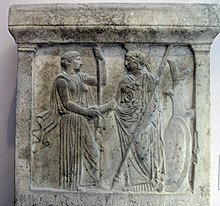This is an essay. It contains the advice or opinions of one or more Wikipedia contributors. This page is not an encyclopedia article, nor is it one of Wikipedia's policies or guidelines, as it has not been thoroughly vetted by the community. Some essays represent widespread norms; others only represent minority viewpoints. |
| This page in a nutshell: Remember to thank editors. We all like to be respected, and we all deserve respect. |
Thanks, I appreciate it.

Wikipedia is a collaborative process. No editor can write an article alone, or even a beautifully written lead section. Combining the ideas of a number of editors and using the writing, research and formatting skills of a range of contributors is our proven method for producing a more comprehensive and useful article, guideline or document.
When we are working on an article or guideline, we may have differing views on how the text should look. In some cases, the disagreement can flare up into a dispute. Even if there are very different views on what facts should be included or what language should be used, it is important to communicate about these issues with civility. Civility amongst editors is one of Wikipedia's key policies, meant to ensure respectful, decent interaction while we work on the encyclopedia.
But, going a little further than mere civility is not a bad idea. We all like to be respected, and we all deserve respect. Most of us respect other Wikipedia editors, even if we have never met them, simply because they are Wikipedia editors, and we are all working on to improve the encyclopedia together. As well, we all agree Wikipedia is a noble cause–even if we disagree about the wording of the last sentence of the lead.
In the Real World, simple words such as "please" and "thank you" go a long way towards facilitating calm, reasoned and respectful discussion. The same is true online. In fact, it is even more important online, because you don't have all the body language and nonverbal communication that is used face-to-face. It only takes a few seconds, and it is worth it. So, say thank you. (You can even say it twice.)